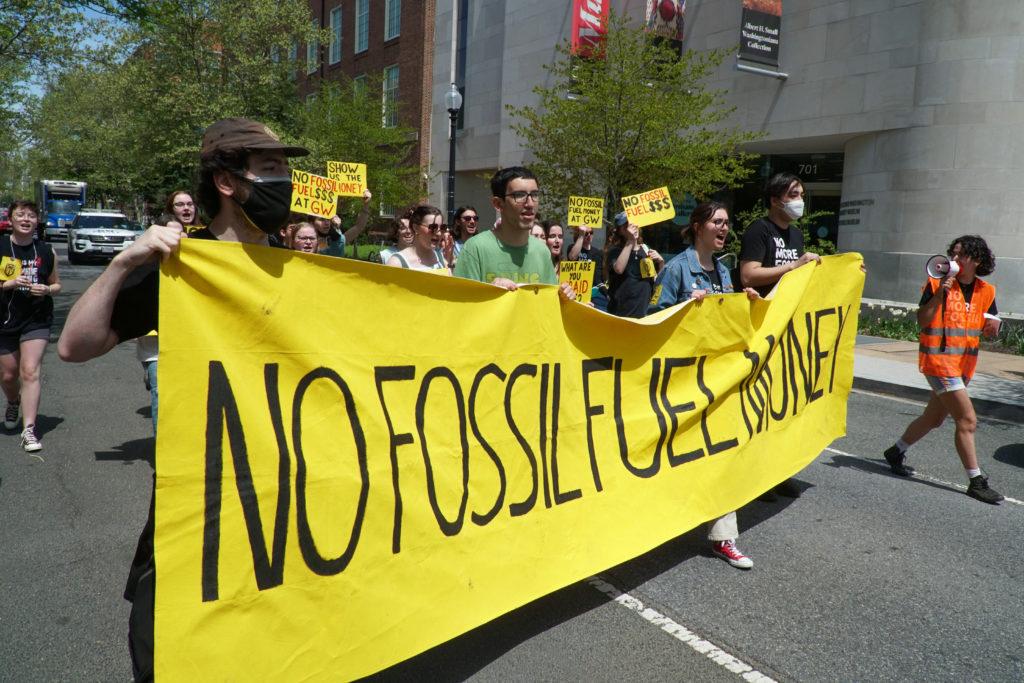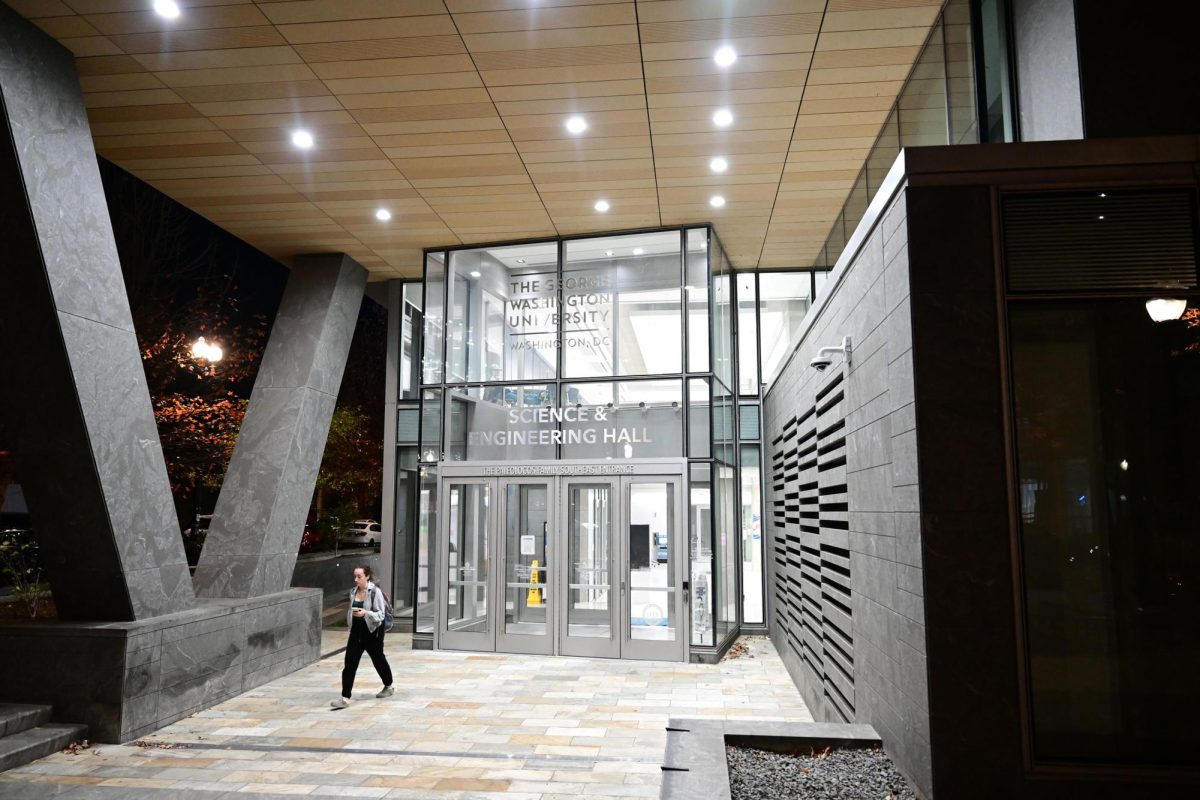Sunrise GW marched with dozens of protesters through campus Friday pressuring officials to reject fossil fuel research funding from companies like ExxonMobil, after demanding federal investment in sustainable practices like renewable energy and GW’s divestment from the fossil fuel industry throughout the academic year.
Protesters marched past Interim University President Mark Wrighton’s F Street House – with what appeared to be GW Police Department officers guarding its front door – to the Office of the President, Provost, Executive Vice President and Chief Financial Officer while chanting for climate action from officials. In 2020, officials announced their plans to divest GW’s endowment from fossil fuel industry companies by 2025, but student climate activists said they are still awaiting funding transparency from officials.
Sophia Halloran – a senior and the former hub coordinator of Sunrise GW – said Sunrise GW raised awareness for their climate action over the past semester through tabling in Kogan Plaza to teach students about fossil fuel investments and meeting with the University president and vice provost. She said Friday’s march was a culmination of this semester’s efforts, but will not be the last event of the campaign.
“We’ve been building power throughout the semester in the past few years to really raise some consciousness around how much money GW is taking from the fossil fuel industry and to take a stand with students and faculty and say that’s not okay,” Halloran said.
She said both students and University department heads are unaware of where a lot of their funding is coming from.
“It’s confusing, but it’s also devastating to know that they’re taking money from this industry that is destroying our futures and has already destroyed so many people’s lives,” Halloran said. “So it’s devastating to see that and it’s devastating to not even know the extent of it.”
Halloran said Sunrise GW organized the march to “reclaim the radical roots” of Earth Day, by demanding direct actions from officials and corporations rather than focusing on making sustainable, conscious decisions as consumers. She said she hopes students are motivated to take more action while demanding climate justice in the future.
“I want the students at GW to be galvanized and know that we want to reject fossil fuel money because it’s destroying our future and the people we love and the places we call home,” Halloran said. “And I want the administration to know that that’s our only ask – we want them to reject fossil fuel money and align with the values they’ve already acted on before to reject fossil fuel money and protect our futures.”
Pada Schaffner – a sophomore and a hub coordinator for Sunrise GW – said this year, the organization “started from the ground up” launching a petition for divestment that garnered almost 2000 signatures and demanded climate action from officials, but the group has not seen any action from the University.
“Since that doesn’t seem to work, we haven’t been able to make any real commitments to bold action on climate change and climate denial on campus,” he said.
Schaffner said Earth Day promotes more sustainable methods of lifelike composting and recycling, which made a good opportunity to protest against fossil fuel investments. He said he hopes officials will begin to take the organization’s message more seriously going forward.
“On Earth Day, all kinds of people come out and say ‘Look, we’re doing all of these great, green things,’” he said. “Even fossil fuel companies. They’ll say ‘We’re investing in green energy, building solar fields and all that.’ We don’t want GW to do the same thing. It’s banning single-use plastics, it’s increasing water refilling stations, while it’s refusing to end the era of fossil fuel influence on college campuses.”
Mary McManus – a freshman and a member of Sunrise GW – said while the University already agreed to divest from fossil fuel industries, they are continuing to receive funding from large fossil fuel corporations for research. She said she hopes the Earth Day protest prompts officials to recognize the impact of their actions on the climate.
“We care about our planet a lot and we want GW to acknowledge that they care about our planet too,” she said.








